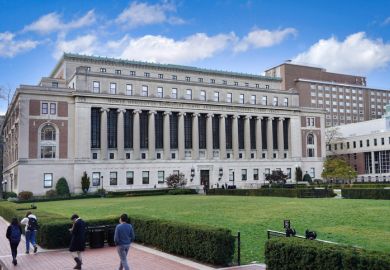Source: Reuters
Spain event: enthusiastic crowds greeted former prime minister Zapatero on a visit to Regent’s University London
José Luis Rodriguez Zapatero, the former Spanish prime minister, left office in the midst of an economic crisis and after the bursting of a colossal property bubble. But rather than getting their pitchforks out, his compatriots greet him as if he were a member of One Direction.
So his recent visit to Regent’s University London would suggest, at least. Mr Zapatero, who served as prime minister between 2004 and 2011, spoke at a conference on student visas hosted by Regent’s and the Commons Home Affairs Committee.
The former lecturer in constitutional law at the University of León, who later rose to lead the national Socialist Party (PSOE), was mobbed by Spanish students and staff seeking photographs and hugs with him. His government was notable for social measures such as the legalisation of same-sex marriage and abortion law reform.
In his speech, Mr Zapatero stressed the importance of international student mobility to globalisation and argued that “the growing number of students in foreign countries will result in a fairer and more peaceful world”.
Drawing a pointed contrast with UK immigration policy, he also said that Spain is “a very open and welcoming country. The issue of visas for foreign students is not political. It doesn’t generate disagreements in the Spanish government.”
Franco, fees and changing fortunes
Speaking to Times Higher Education via an interpreter after the speech, Mr Zapatero discussed why Spain’s universities generally lag behind those of other Western European nations in reputation and performance.
Spain’s universities are “coming from a different background”, said Mr Zapatero, noting that the country’s transition to democracy was completed only in the early 1980s following the end of the Franco era. With education levels below the European average a legacy of the dictatorship, the first goal had been to bring all the population up to a decent standard, he added.
The “second thing we have to achieve now is efficiency in education”, Mr Zapatero continued.
The principal higher education change in his time in office had been “to make the university system more independent”, said the former prime minister, who announced in 2011 that he would not seek a third term. The right-wing People’s Party went on to deal the PSOE a crushing defeat in that year’s election.
Had he stayed on longer, Mr Zapatero said, he “would have liked to focus more on the connection between companies and universities”, an area in which Spain lags behind “compared with other countries around the world, especially compared with British universities”.
Since his exit, the PP has increased tuition fees and cut funding for universities as part of its austerity programme, said Mr Zapatero. “Spain had [some] of the lowest fees in the whole of Europe and now they have increased considerably,” he added.
Given the historic underperformance of Spain’s universities, the success of its business schools is notable: Madrid’s IE Business School and Barcelona’s IESE Business School are both ranked in the top 20 in global business school rankings.
“It’s really significant that we have one of the best business schools in the world,” Mr Zapatero said, adding that this was “not part of the typical Spanish tradition in the education sector”.
He argued that in terms of recruiting overseas undergraduates and postgraduates more generally, the Spanish language – the language with the most native speakers in the world after Mandarin – is “the motor…to attract more students”.
Spain now has 9,000 Chinese students, mostly seeking a “possible future in Latin America”, said Mr Zapatero.
In his speech, he told the audience that during his time in office, the number of overseas students in Spain had risen from 35,000 to 75,000.
He noted: “Where there is a great number of foreign students, like in the United Kingdom’s case, a challenge arises that governments must shoulder. But I believe that the benefits of international academic mobility are far superior to the efforts we must invest to resolve [the challenge].”
In the brief interview after his speech, there was just time for one last question. Critics have suggested that there is a problem with nepotism, or even corruption, in the Spanish university system with regard to appointments and research culture. Did Mr Zapatero see that as a problem?
“That doesn’t have anything to do with education in Spain,” he answered. “In the education system in Spain, we don’t have corruption.”
With that Mr Zapatero was off, ushered swiftly away to a waiting car by Labour MP Keith Vaz, chair of the Home Affairs Committee, to avoid any more fan adulation.
Register to continue
Why register?
- Registration is free and only takes a moment
- Once registered, you can read 3 articles a month
- Sign up for our newsletter
Subscribe
Or subscribe for unlimited access to:
- Unlimited access to news, views, insights & reviews
- Digital editions
- Digital access to THE’s university and college rankings analysis
Already registered or a current subscriber? Login





